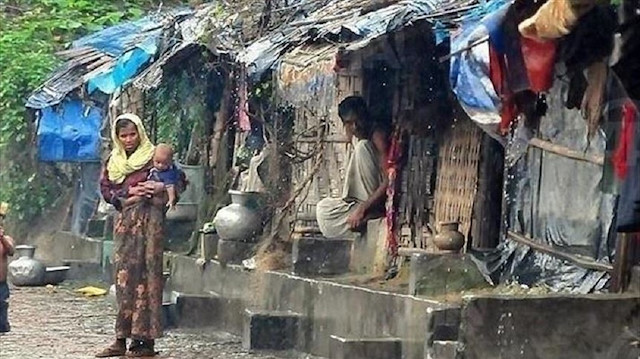The Southern Thai Peace Delegation was led by Baba Abdulrahman, the chair of the Pattani Islamic Religious Council, while Wanlop Rugsanaoh was present as the head of the government delegation.
Muslim representatives asked the government to proclaim Friday, a holy day for Muslims, as a public holiday and for the Malay language to be declared as the official language of southern Pattani, Yala, Narathiwat and Songkhla provinces.
The four provinces have a large population of the Muslim Malay community, Patani, with 1.4 million residents, according to government data.
Representatives also proposed those familiar with Islamic practices be put in charge of pilgrimage affairs, drafting Islamic laws for the provinces and the development of a halal industry.
- Historical legitimacy
Teuku Zulkhairi, an Indonesian Islamic expert in Southeast Asia from Ar-Raniry State Islamic University, voiced appreciation for the meeting.
Zulkhairi told Anadolu Agency minority groups in the south are part of the Malay Muslim entity that has a strong and long history in southeast Asia.
He said they are not a new community in southern provinces and noted that Islam had entered the region in the 15th century, which led to the establishment of the Patani Darussalam Kingdom.
"The Patani name came from al-Fatani in Arabic which means ‘intellectuals’ since there were many Muslim ulemas [scholars] born there," Zulkhairi said.
The Patani Darussalam Kingdom was then conquered by the Kingdom of Siam, the Thai ruler, in 1785. Siam took control of Patani’s entire territory and divided it into seven provinces.
Thai ruler, King Chulalongkorn, broke the peace treaty with the provinces in 1901 and launched a military campaign. It ended in 1909 with the Anglo-Siam treaty, which paved the way for the Kingdom to annex the southern Thailand region.
- Freedom for Muslim minorities
Zulkhairi voiced the importance for the Thai government to provide freedom for Muslim minorities in carrying out religious teachings in language and an education curriculum.
He also called on the largest Muslim countries in southeast Asia -- Indonesia and Malaysia -- to encourage Thailand to protect the rights of the Patani Muslim minority.
Zulkhairi said if Muslims in southern Thailand can live in peace and enjoy freedom and justice, it will have a positive influence on Thailand’s image in international eyes.
"This is a challenge for the Thai government to show its commitment," he said.
Human rights activist Mustopha Mansor from the Malaysian Civil Society Solidarity Association, which often provides humanitarian assistance in southern Thailand, has a similar view regarding Muslim minorities.
“The demands from Patani Muslim delegations were in accordance with the 1948 UN Universal Declaration of Human Rights,” Mansor said.



